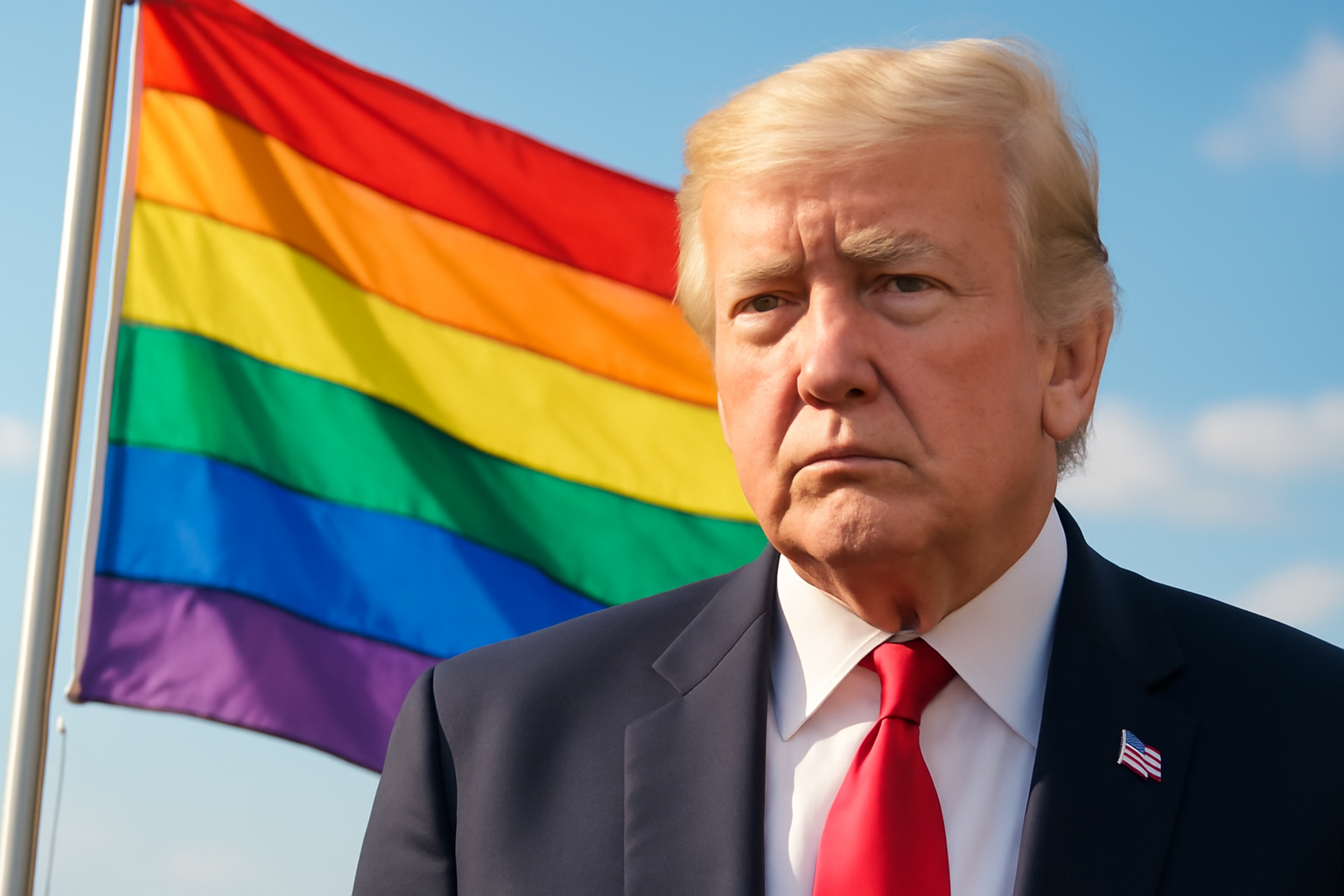
In a significant move that has stirred controversy and concern among advocates for workplace diversity and inclusion, former President Donald Trump's administration has repealed a landmark anti-discrimination directive that had been instrumental in shaping employment practices for over half a century.
The executive order, dubbed "Ending illegal discrimination and restoring merit-based opportunity," effectively dismantles the Equal Employment Opportunity Act (Executive Order 11246) originally signed by President Lyndon B. Johnson in 1965. This historic order was pivotal in banning workplace discrimination based on race, creed, color, or national origin and was later expanded to include protections based on sex, sexual orientation, and gender identity.
With this repeal, the Trump administration asserts a return to what it describes as "merit-based opportunities," framing diversity, equity, and inclusion (DEI) initiatives as "dangerous, demeaning, and immoral." The administration's order argues that such programs perpetuate race- and sex-based preferences that it claims are "unlawful" and corrosive to national unity.
The Impact on Workplace Diversity
The original Equal Employment Opportunity Act not only prohibited discrimination but also mandated that contractors take affirmative action to ensure equal employment opportunities for marginalized communities. By revoking this directive, there are fears that progress in workplace diversity could face significant setbacks.
The Trump administration's stance is that DEI initiatives unfairly advantage certain groups over others, particularly highlighting concerns of reverse discrimination against white men. The order suggests that inclusion programs undermine traditional American values such as hard work and individual achievement.
Broader Implications for the LGBTQ+ Community
For the LGBTQ+ community, the repeal of this executive order is particularly troubling. The inclusion of sexual orientation and gender identity in anti-discrimination policies has been hard-won and fundamental to ensuring equal treatment in the workplace.
By targeting DEI programs, the administration's actions may strip away protections that have so far safeguarded LGBTQ+ individuals from discrimination. The move is seen by many as a step backward in the fight for equality and could set a precedent for future policies that threaten the community's rights.
Reactions and Resistance
The executive order has sparked a wave of criticism and resistance from various advocacy groups and organizations committed to promoting diversity and inclusion.
Critics argue that the order propagates the myth that DEI programs result in unqualified individuals being promoted solely based on their identity, rather than their merit. They assert that such programs are essential in addressing systemic inequalities and ensuring a fairer, more equitable workplace.
In response, many organizations are doubling down on their commitment to DEI principles, recognizing that diverse teams contribute to greater innovation and better decision-making.
Future of DEI Initiatives
Despite the setback posed by this executive order, the push for diversity and inclusion in the workplace is unlikely to wane. Activists and allies remain steadfast in their efforts to promote policies that foster an inclusive environment for all, regardless of race, gender, or sexual orientation.
Companies and institutions that value diversity are likely to continue advocating for inclusive practices, even as federal policies shift. By doing so, they aim to uphold the principles of equality and justice that have been fought for over the decades.
As the landscape of workplace diversity continues to evolve, the importance of community support and activism cannot be overstated. Stakeholders within the LGBTQ+ community and beyond are encouraged to stay informed and engaged, ensuring that progress towards equality is not only maintained but accelerated.
For those interested in staying informed about these developments and their impact on the LGBTQ+ community, subscribing to newsletters and engaging with community platforms can provide valuable insights and updates.
The revocation of the Equal Employment Opportunity Act marks a pivotal moment in the ongoing struggle for workplace equality, and the response of the community will be crucial in shaping the future of DEI initiatives.
Related Posts
Controversial Comedy Show Under Scrutiny After Complaints About Anti-LGBTQ+ Comments
Comedy panel show Headliners under fire amid backlash The hit comedy panel show, Headliners, aired on GB News, finds itself in hot water after a torrent 0of viewer complaints flooded in. The uproar began with comedian Josh Howie's guest spot, where his comments struck a nerve with many in and supportive 0of 0the LGBTQ+ community. On January 22nd, Howie made comments that many felt spread a harmf [...]
Former Anti-LGBTQ+ Activist Anita Bryant Passes Away at 84
Remembering a controversial figure: Anita Bryant's legacy Anita Bryant, once a celebrated singer and a vocal opponent against LGBTQ+ rights, passed away on December 16th at 84 in Edmond, Oklahoma, after a battle with cancer. Her life was a tapestry woven with music, controversy, and a fierce disposition on LGBTQ+ issues that often overshadowed her earlier musical accomplishments. From music star [...]
Beyoncé Concert Venue Issues Apology to Visually Impaired Fan After Disheartening VIP Experience
Picture this: you've got a golden ticket—a VIP pass—to see Beyoncé at Tottenham Hotspur Stadium in London. Sounds like a dream, right? Well, that's what Esther Obigbesan thought too. But things took an unexpected turn when her visual aid, a cane, led her down a path she never anticipated. This experience has sparked an important conversation about accessibility and inclusivity at big events. [...]